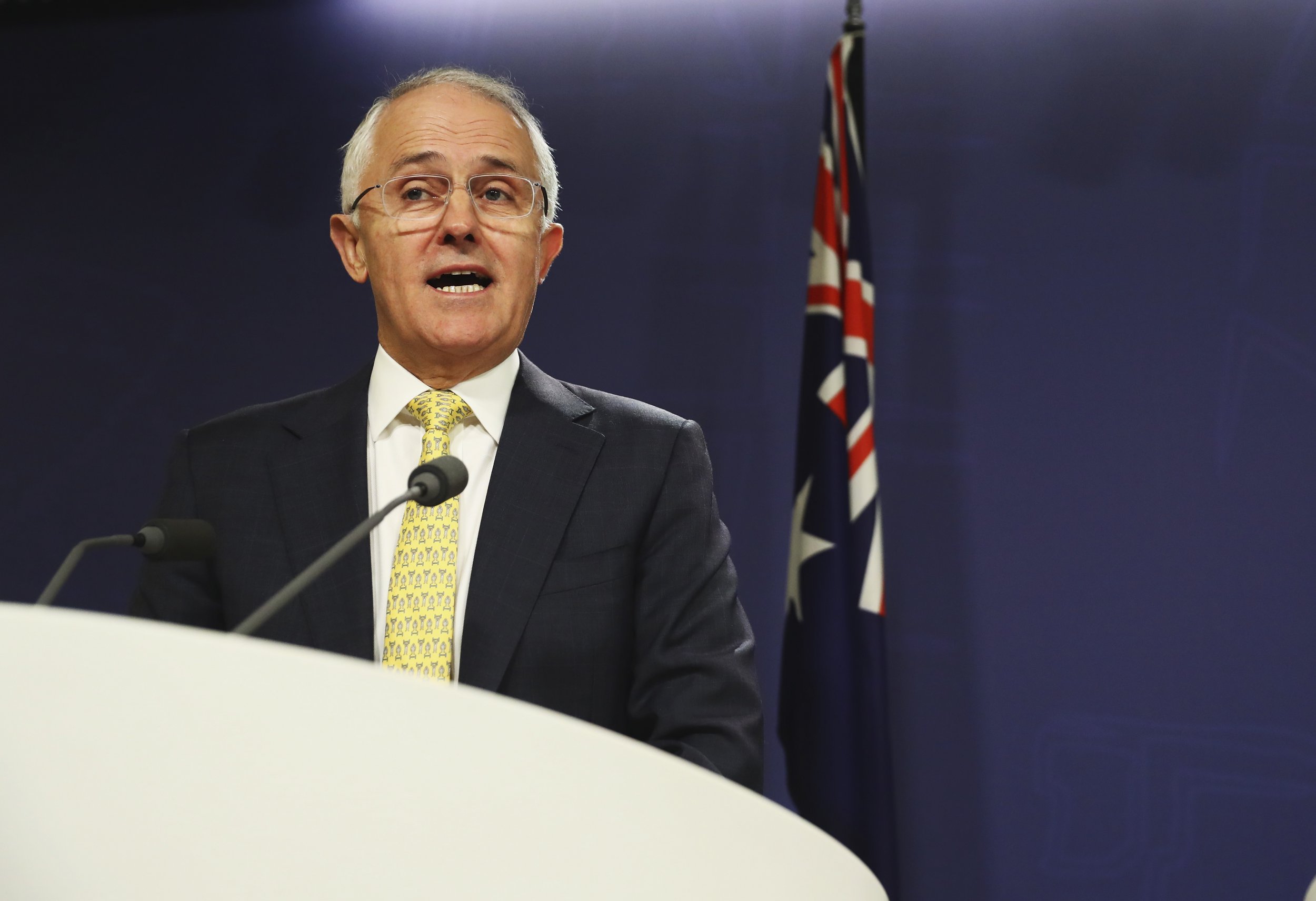
Australia voted in an historic election over the weekend. And the result is clear as mud.
Voters went to the polls on Saturday in the country's first-ever double-dissolution election, where all the seats in both the lower and upper houses of parliament were contested at the same time.
As of Monday, the Australian Electoral Commission put the opposition Labor party ahead on 69 seats in the lower house, the House of Representatives, while the ruling Liberal-National coalition has 64 seats. Five seats are listed as close and the result will not be known for at least a few days, as counting of postal, pre-poll and absentee votes will not resume until Tuesday (results for the Senate vote will take several weeks). A hung parliament, where neither party has an absolute majority, is a distinct possibility as both of the major parties reach out to independents and cross-benchers for possible support.
Newsweek takes a look at the main contenders and those who could be king-makers.
The Liberal-National Coalition
Australia's current government consists of a coalition of the center-right Liberal Party, led by Prime Minister Malcolm Turnbull, and its minor partner, the National Party of Australia. Turnbull replaced former Australian leader Tony Abbott in September 2015 and called the election in May in an attempt to clear the Senate of independents who are blocking his agenda, including industrial tax cuts. Turnbull said on Sunday that he believes he will obtain the 76 seats needed to govern in the 150-seat house and said he has contacted independents in the event of needing to form a coalition. But critics have said Turnbull ran a lazy campaign and Labor leader Bill Shorten called on the prime minister to resign, saying Turnbull used the U.K.'s vote on leaving the European Union as a scare-tactic to encourage Australia not to change government. "He Brexited himself," said Shorten, according to The Guardian. "He leads a divided party, he has had an election and he has delivered an inferior and unstable outcome."
The Labor Party
Shorten's Labor Party, which sits in the center-left of the political spectrum, is currently leading the polls. The party leader said he has reached out to independents and has also indicated he would be willing to work with Turnbull's Liberal Party. Shorten took the leadership of Labor following a poor performance in the 2013 election and has laid out several policies during the campaign, including promising a royal commission into the misconduct in the banking and financial services industry.
Independents and minor parties
Almost 25 percent of Australians voted for a lower house candidate from outside the two major parties, a sign that mainstream politics is no longer cutting the mustard for many in the country.
Nick Xenophon is ahead in two seats with his Nick Xenophon Team and has said he is open to a formal minority government with either of the major parties. Xenophon is an unusual character in Australian politics—he attended a recent all-night Senate sitting wearing pyjamas—and built his career upon anti-gambling policies.
Pauline Hanson, the leader of the right-wing One Nation party, has caused a stir in Australia by calling for a royal commission into Islam and a ban on the building of new mosques. Hanson has also demanded a zero-net immigration policy—where the number of people entering Australia is equal to the number leaving.
The Australian Greens are ahead in one seat and could be another crucial partner for one of the major parties in a coalition. The party have provided a polar opposite to Hanson's campaign, championing the cause of refugees in Australia, which has notoriously tough immigration and asylum policies.
Uncommon Knowledge
Newsweek is committed to challenging conventional wisdom and finding connections in the search for common ground.
Newsweek is committed to challenging conventional wisdom and finding connections in the search for common ground.
About the writer
Conor is a staff writer for Newsweek covering Africa, with a focus on Nigeria, security and conflict.
To read how Newsweek uses AI as a newsroom tool, Click here.








